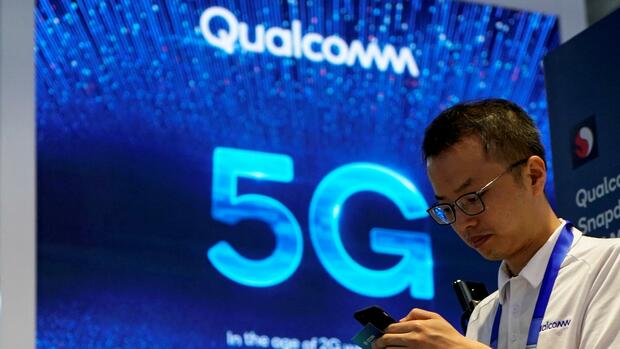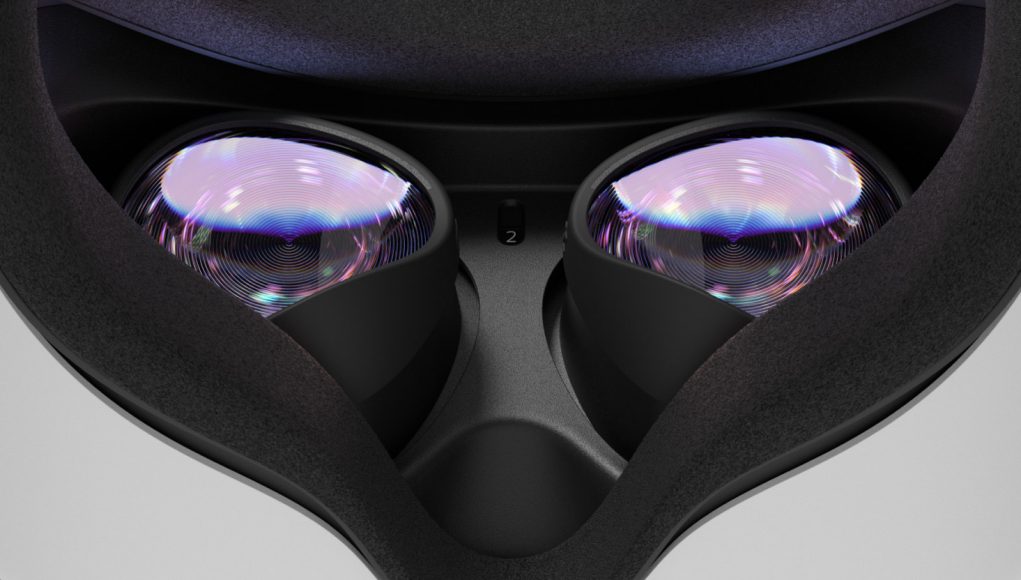Munich In Munich’s Werksviertel, chimneys have not been smoking for a long time. The industrial area has turned into a party zone, an excursion destination and an office district. But one of the largest chip companies in the world still manufactures on the edge of the area behind the Ostbahnhof: Qualcomm.
An electronics factory in the middle of a big city is extraordinary in itself. For Qualcomm, however, it is almost a sensation, because the world’s largest supplier of mobile phone chips obtains almost all of its goods from contract manufacturers.
But the division to which the plant belongs is also out of the ordinary at Qualcomm: Radio Frequency Front-End, or RFFE for short, is the only division of the US company that is not based in America – but in Munich.
A special way that pays off for Qualcomm: in the past financial year, sales of the division skyrocketed by 76 percent to almost 4.2 billion dollars (4 billion euros), which corresponds to about twelve percent of Group revenues. This was the fastest growing business of the company from San Diego.
“Design and technology go hand in hand with us,” says Head of Division Christian Block. Therefore, after Qualcomm took over the business two and a half years ago, he fought vehemently internally to preserve the factory – and also the other two factories in Singapore and China. Of the 5,000 employees in the division, 1,400 work in Munich.
Qualcomm is known for its processors, the brains of smartphones. They are marketed under the brand name “Snapdragon” and produced by contract manufacturers such as Samsung or TSMC in the Far East. In this way, the company saves investments in billion-dollar plants, such as Intel as a fully integrated provider. In addition, the Group recently made headlines as a chip supplier for the automotive industry and won VW and BMW as customers in automated driving.
>>> Read also: Chip industry is growing impetuously – but managers are getting nervous
Munich, on the other hand, is responsible for high-frequency filters. The components filter the radio signals of the various frequency bands in mobile radio, with which the telephones receive and send information. This can be compared a little with the radios of the past, where the stations had to be separated. According to Block, the technology has become even more complex with the new 5G mobile communications standard.
The roots go back to Siemens
What sets Qualcomm apart are the complete RFFE solutions on just one chip, which enable a signal chain from the modem to the antenna. Qualcomm sees itself as the only manufacturer of such highly integrated components with a market share of 20 percent for high-frequency filters in mobile communications. “The performance of the filters is highly relevant for the entire system,” explains Block.
It is no coincidence that the business is located in the middle of the Bavarian capital. The roots go back to the Munich electrical specialist Siemens. In 1999, the Dax Group first listed the division on the stock exchange under the name Epcos, later TDK joined. The Japanese first created a joint venture with Qualcomm in 2016, in the fall of 2019 they finally sold their part to the Americans.
Components from the Munich-based company are found in practically all mobile phones with the Android operating system, from Google to Samsung to Xiaomi, and also in Apple’s iPhones.
At the Investor Day last year, CEO Cristiano Amon promised investors a strong growth of the Munich division. Sales would grow at least as much as the market by 2024, the manager announced, that is: no less than twelve percent plus every year.
This would bring the business to almost six billion dollars in sales in two years. By contrast, the market is expected to grow from $ 17 billion last year to $24 billion. The best-known competitors in this field are the American companies Broadcom, Skyworks and Qorvo as well as Murata from Japan.
So far, the mobile phone manufacturers have accounted for by far the largest part of the division’s revenues. At Qualcomm, however, they assume that in two years three out of four new cars will be connected to the Internet – and thus become a mobile smartphone. This opens up a huge sales potential for the entire Group, but also for the Munich RFFE.
“However, higher demands are also placed on the components in the car,” says Block Division Manager. In the future, the division could generate up to $ 30 in sales for every vehicle with components for a 5G mobile connection, according to documents for investors. Double-digit growth rates should thus also be guaranteed for the next few years – and the preservation of the unique factory in Munich.








